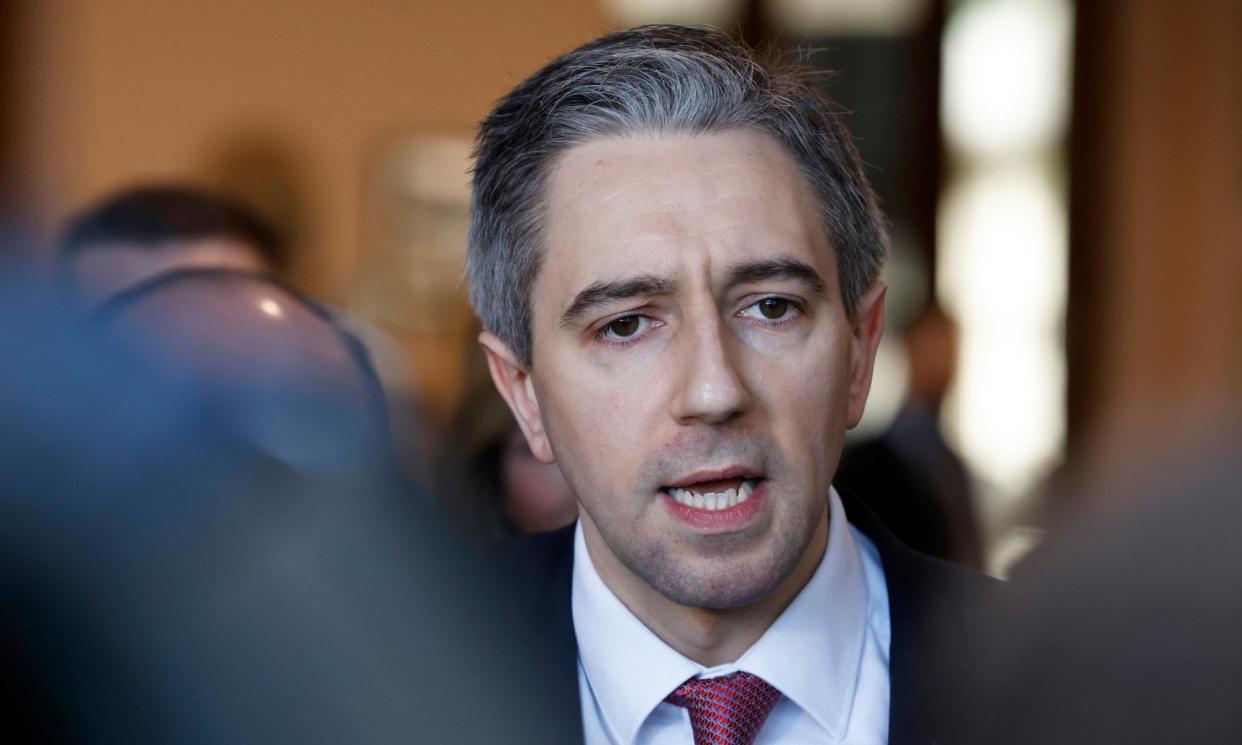Simon Harris to become Ireland’s youngest prime minister

Simon Harris will become Ireland’s youngest prime minister after the leadership race in his Fine Gael party ended without any other candidates coming forward.
The leadership became vacant after the taoiseach, Leo Varadkar, announced his surprise resignation “for personal and political reasons” last week.
Harris, 37, the higher education minister, was the only candidate when nominations closed at 1pm on Sunday, but he will not become taoiseach until 9 April when the Irish parliament, the Dáil, resumes after its Easter break.
He outlined his leadership priorities on Sunday at a selection convention in Athlone, County Westmeath, to choose party candidates for the European parliament elections in June.
Harris said he wanted the centre-right Fine Gael – which governs with fellow conservatives Fianna Fáil and the Green party – to revert to core values including making work pay, being tough on law and order and supporting farmers.
“Fine Gael stands for supporting businesses, especially small businesses the length and breadth of this country. Fine Gael stands for making work pay, for making sure we value work and we value people who go to work.”
To cheers from the audience he added: “Fine Gael stands for law and order.”
He also told delegates “it was the absolute honour of my life” to be elected leader. He concluded, to a standing ovation, with: “I’m up for it. Are you?”
Heather Humphreys, the social protection minister, who is from a rural border constituency, is expected to be named as deputy leader of the party.
Harris has given no indication as to possible changes in Fine Gael ministerial ranks. But there is speculation that ministers who do not intend to stand at the next election will be dropped. It is widely believed that Simon Coveney will be a casualty in the reshuffle.
Varadkar resigned after taking responsibility for the government’s failure in the recent referendums to update references to women and the family in the constitution.
Harris is widely seen as a good communicator, particularly on social media. He has held a number of ministerial portfolios including health at the start of the Covid pandemic.
Although widely praised for his handling of the crisis, he had to apologise for what he called an “awful boo-boo” after incorrectly saying in a radio interview there were 18 other coronaviruses before Covid-19.
Until Varadkar’s resignation it had been assumed that Ireland’s next general election would be in October after a giveaway budget in September but the leaders of Fianna Fáil and the Greens say they believe the government should see out the remaining 12 months of its term.
Both Fine Gael and Fianna Fáil are trailing Sinn Féin, the leftwing nationalist party and Ireland’s main opposition, in the polls but the political situation is very fluid.
Sinn Féin, once the political wing of the IRA, is the largest party in the Northern Ireland assembly.
A poll in the Sunday Business Post shows support for all three parties has fallen after the referendums, in which all three urged a yes vote to the proposed changes.
The Sinn Féin leader, Mary Lou McDonald, has demanded an immediate election but Harris is unlikely to grant her that. Instead he is expected to prioritise re-energising his party and focus on voters’ key concerns, including housing.


